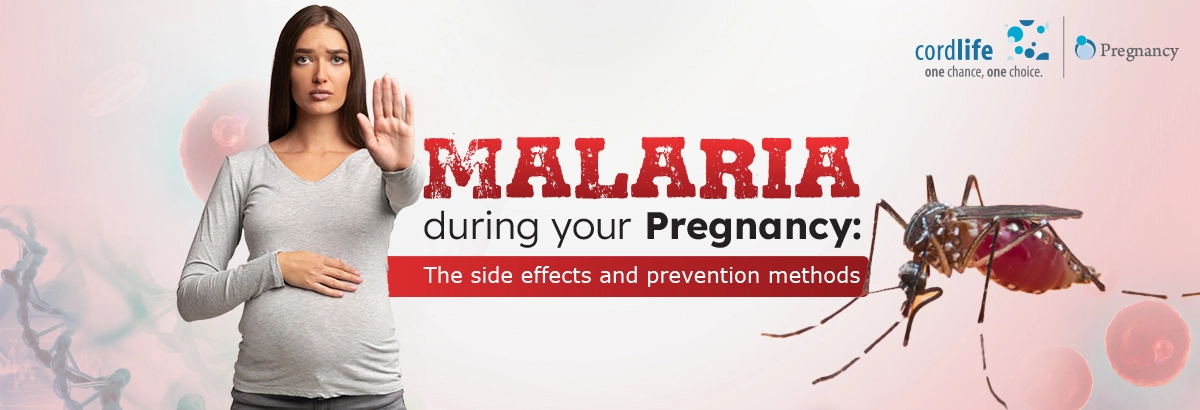Table of Contents
Taking care of your health and your baby’s health is an essential part of your pregnancy. After all, you’re nurturing another life inside you, and that is not an easy thing to do. Nevertheless, due to the fluctuating pregnancy hormones as well as the changing immunity; you’re more prone to falling sick with viral infections like the cold, flu, chicken pox, and measles. Such infections are most common during the early summer, spring, and winter.
Malaria is also highly seasonal. Humidity, temperature, and rainfall are some of the breeding grounds for mosquitoes and malaria.
What are the Effects of Malaria During Pregnancy?
You are most likely to contract malaria during the first or second trimester. Along with hormonal and immunological changes, the rise in body temperature during pregnancy can make you more easily infected with malaria. The condition may not affect you or the baby growing inside you positively. In what way?
To begin with, being almost similar to the other seasonal influenzas, malaria can make you feel feverish. The fever can be extremely high or low, accompanied by shivering and sweating. You may also have headaches, muscle pain, nausea as well as vomiting, as a result of malaria.
Studies have also revealed that malaria in pregnancy may be associated with adverse pregnancy outcomes like maternal anaemia, and low birth weight babies.
Nutritional anaemia may be a common pregnancy challenge, but malaria-induced anaemia may have fatal effects too. The malarial parasites enter your bloodstream and pass down to the placenta disrupting its most essential function of nourishing the baby with all-essential oxygen and nutrients. Disruption of nutritional exchange between you and the baby inside you disrupts the growth of the baby and causes intrauterine growth retardation. It may further be associated with the risk of preterm birth, stillbirth, or miscarriage.
However, you needn’t feel scared. There are ways to prevent the problem and treat the condition.
How to Prevent or Avoid Malaria During Pregnancy?
There are certain governmental organisations such as World Health Organisation (WHO) and a few others have introduced safe, and effective strategies to keep the mosquitoes hovering around you and your house as well as malaria at bay. Their strategies are as follows:
Insecticide-treated Nets and Indoor Spraying
Research has shown that the trials were carried out in places like Africa and Asia (including India). Both these countries have been more prone to mosquitoes and Malaria. Mosquitoes rest in cool, dark as well as humid places in your house like closets, showers, under the tables, etc. Spraying an insecticide inside your house may reduce the number of mosquitoes entering your house. Therefore, your chances of being bitten by mosquitoes that cause malaria may also reduce. In addition to this, the bed nets form a protective barrier for you while you go to bed.
Intermittent Preventive Treatment (IPTp)
This entails the administration of an effective dose of an anti–malarial drug even if you are not tested for the malaria parasite. And, you can take this treatment at each of your antenatal care visits. As early as your second trimester.
Apart from the preventive measures mentioned above, there are some natural ways to stop the spread of malaria during pregnancy. And the natural ways to contain the spread of the disease are:
Removing the Standing Water
Mosquitoes, usually lay their eggs above, on, or near stagnant water present in buckets, plant trays, or wading pools.
- Empty them and change the containers at regular intervals with fresh water.
- Keep the water containers covered.
- Cover the pipes if they have small holes.
- Repair the septic tanks if they have gaps.
Wear the Correct Clothes
Dark clothes or bright colours, even floral prints attract mosquitoes. Wear light–coloured and loose–fitting clothes, instead. Wearing full sleeves may also be a good option for you. If required choose maternity clothes keeping these few things in mind.
Stay Say “No” to Using Strong Fragrances
Floral or fruit fragrances turn out to be strong for mosquitoes and tend to attract them. It would always be better for you to go for unscented soap, shampoos, and perfumes. However, using lavender, peppermint, lemongrass, etc are some of the scents that can repel mosquitoes during your pregnancy instead. Use a body spray infused with the above-mentioned pregnancy–safe essential oils. Alternatively, whenever you purchase mosquito repellents from the market, choose the repellents which have this essence in them. Don’t forget to keep them switched on from late in the evening.
Use Mesh Screens For Doors and Windows
Install wire mesh to cover your doors and windows. Don’t forget to check for holes present on the mesh and repair them before installing.
Pregnancy-safe medications are also available to treat malaria in the first, second or third trimester. However, the medicines are given depending upon the severity of the disease.
So, if you are a pregnant mother and have the slightest doubt about experiencing any malarial symptoms, visit the doctor immediately.
For more information on pregnancy and cord blood banking, follow our blog page regularly.
